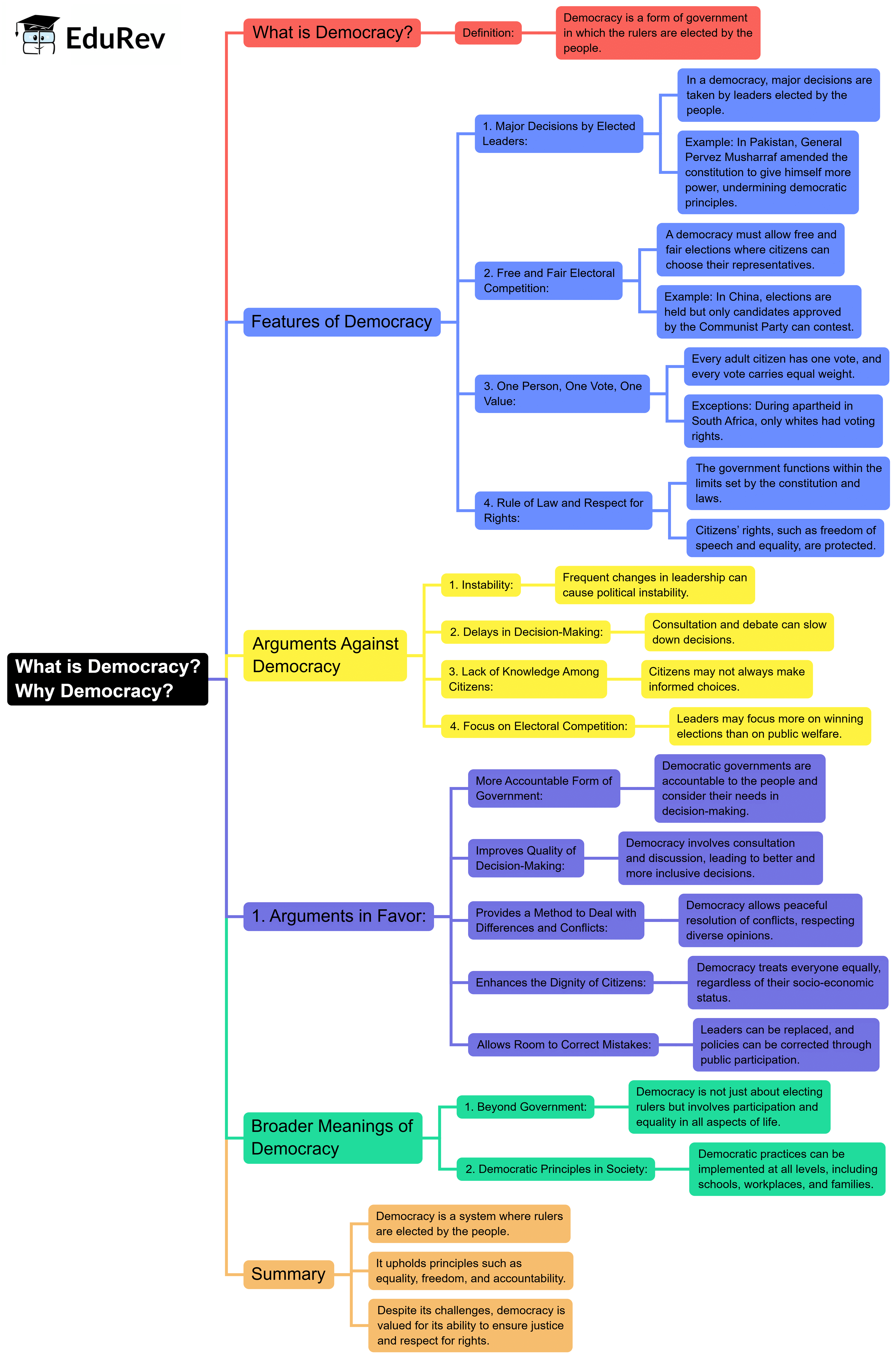Class 9 Exam > Class 9 Notes > Subject-Wise Mind Maps for Class 9 > Mind Map: What is Democracy? Why Democracy?
Mind Map: What is Democracy? Why Democracy? | Subject-Wise Mind Maps for Class 9 PDF Download

The document Mind Map: What is Democracy? Why Democracy? | Subject-Wise Mind Maps for Class 9 is a part of the Class 9 Course Subject-Wise Mind Maps for Class 9.
All you need of Class 9 at this link: Class 9
FAQs on Mind Map: What is Democracy? Why Democracy? - Subject-Wise Mind Maps for Class 9
| 1. What is the definition of democracy? |  |
Ans.Democracy is a system of government in which the citizens exercise power directly or elect representatives to make decisions on their behalf. It emphasizes the principles of equality, freedom, and rule of law, allowing for participation in political processes.
| 2. Why is democracy important for society? |  |
Ans.Democracy is important because it promotes individual freedoms, protects human rights, and fosters social justice. It enables citizens to have a voice in governance, encourages accountability among leaders, and facilitates peaceful transitions of power, contributing to political stability.
| 3. What are the different types of democracy? |  |
Ans.The main types of democracy are direct democracy, where citizens vote on laws and policies directly, and representative democracy, where citizens elect representatives to make decisions on their behalf. Other variations include parliamentary democracy and presidential democracy, each with its own structures and processes.
| 4. How does democracy impact economic development? |  |
Ans.Democracy can positively impact economic development by ensuring that government policies are transparent and accountable, which can attract investment. It fosters an environment of stability and promotes the protection of property rights, encouraging both local and foreign businesses to thrive.
| 5. What are the challenges faced by democracies today? |  |
Ans.Democracies today face several challenges, including political polarization, misinformation, threats to civil liberties, and the rise of authoritarianism. These factors can undermine public trust in democratic institutions and processes, making it essential for societies to actively engage in safeguarding democratic values.
Related Searches

















